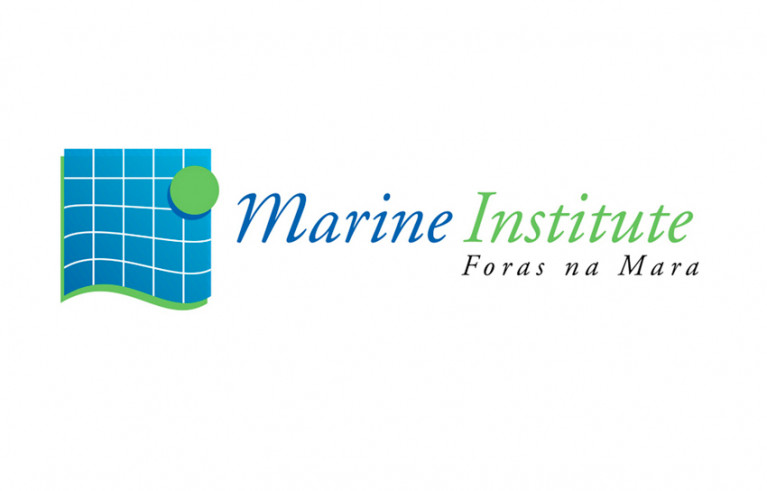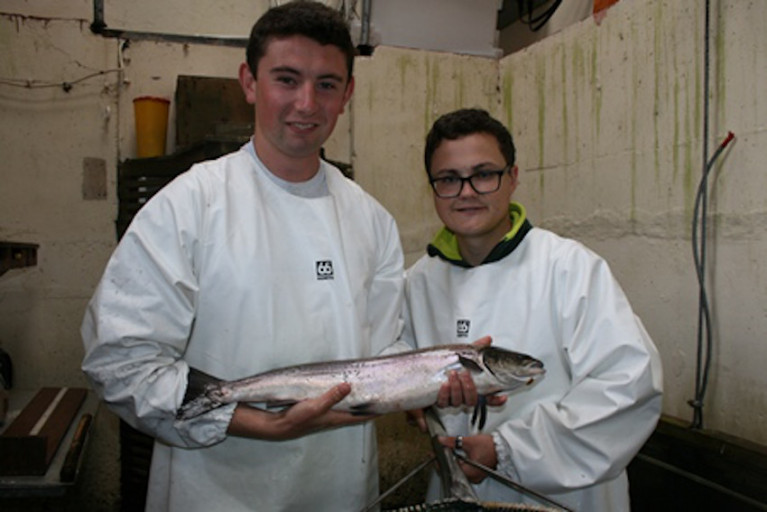Displaying items by tag: Bursary Programme
The Marine Institute has announced its 2024 Summer Bursary Scholarship Programme, inviting third-level students to apply for work experience in a variety of marine areas. The programme, which has been running for over 30 years, provides essential career development, support, and inspiration to the next generation of marine professionals.
Designed to equip students with the skills to become ocean leaders and marine champions of the future, the Bursary Scholarship Programme is a key initiative of the Marine Institute's Strategic Plan 2023-2027: Ocean knowledge that informs and Inspires. Undergraduates of Universities and Institutes for Higher Education, both National and International, are eligible to apply for the programme, provided they have completed two years of study in a relevant discipline by the beginning of June 2024.
Successful candidates will work with full-time staff of the Marine Institute in a variety of exciting areas such as marine and freshwater fisheries monitoring, aquaculture, benthic monitoring, shellfish safety media and communications, SmartBay community engagements and Smart Bay AI, economics, policy analysis, human resources, oceanography machine learning, remote sensing, marine infrastructure, and marine communications.
Patricia Orme, Director of Corporate Services at the Marine Institute, said, "The Marine Institute Bursary Scholarship Programme has operated for over 30 years. It continues to offer opportunities for undergraduate students to develop their skills and strengthen their knowledge in relation to the marine sector. Participating students are enabled to make informed decisions early in their studies about the marine and maritime careers they would like to pursue."
The programme provides undergraduates with a unique opportunity to meet fellow students from other third-level colleges, as well as work with experts in their field, helping them form a future network in the marine sector. The bursaries are based at the Marine Institute's facilities in Oranmore, Co. Galway and Newport Co. Mayo.
The Marine Institute is committed to supporting a culture of high performance driven by its people, whose skills, experience, and passion for the marine are central to the work performed for government and other stakeholders. The Bursary Scholarship Programme, therefore, serves as an important investment in the future generation of ocean professionals.
To Apply for the 2024 Bursary Programme:
- Please view the bursary titles available on www.marine.ie
- Select the two bursary positions that interest you the most and in order of preference
- Complete the online application form and submit as per the instructions
- Application Deadline Date is Friday 23rd February 2024
Online application form
The Marine Institute’s 2021 Summer Bursary Scholarship Programme is under way as a group of 10 undergraduate students have been welcomed by the State agency for marine research to expand their knowledge and understanding of marine science and related areas.
Running for over 30 years, as previously reported on Afloat.ie, the programme resumes this year in line with the Government’s public health guidelines. Through this programme students are brought together from a wide range of disciplines and educational institutes.
The bursary programme provides students with a unique opportunity to form connections with fellow students nationwide, experts in their fields and the wider marine sector.
“The work experience programme gives students the opportunity to further their knowledge and research in their particular area of interest and gain insight into careers in the marine sector,” said Ms Helen McCormick, senior laboratory analyst at the Marine Institute and co-ordinator of the bursary programme.
The programme helps to equip students with the skills to become ocean leaders and marine champions of the future, and is a key initiative of the Marine Institute's Strategic Plan 2018-2022: Building Ocean Knowledge, Delivering Ocean Services.
Welcoming this year’s students, Mick Gillooly, interim CEO at the Marine Institute, said: “The bursary programme is a long-established scholarship in the Marine Institute that continues to support and inspire the next generation of marine scientists and experts.
“Students are given a unique opportunity to learn from and form key connections with professionals across a range of areas in the marine sector.”
The Bursary Scholarship Programme is aimed at undergraduates of universities, institutes of technology and national institutes for higher education. To participate in the programme, undergraduate students must have completed two years of study in a relevant discipline by the beginning of June 2021.
Marine Institute’s Bursary Scholarship Programme Now Open for Student Applications
The Marine Institute is inviting marine science undergraduates to apply for a number of work experience placements as part of the 2021 Summer Bursary Scholarship Programme.
This year the programme will offer a number of eight- to 12-week placements for up to 11 undergraduate students who will be based at either the Marine Institute headquarters in Oranmore, Co Galway or the research facility at Newport, Co Mayo.
The programme offers students practical experience in areas such as freshwater fisheries, salmon scale archiving, aquaculture, oceanography data sets, marine infrastructure asset management, finance, human resources and marine communications.
As previously reported on Afloat.ie, the Bursary Scholarship Programme has been running for over 30 years, providing essential career development and support, and inspiring the next generation of marine scientists and experts. It is aimed at undergraduates of universities, institutes of technology and national institutes for higher education.
To participate in the programme, undergraduate students must have completed two years of study in a relevant discipline by the beginning of June 2021. Successful applicants will receive a scholarship worth €275 per week for the duration of the work placement.
To apply for the 2021 Bursary Programme:
- View the bursary titles available
- Select the two bursary positions that interest you the most and in order of preference
- Complete the application form and return it FAO Helen McCormick, Marine Institute, Rinville, Oranmore, Galway, H91 R673
The application deadline date is Friday 26 February.
Students Invited To Apply For Marine Institute’s 2020 Bursary Scholarship Programme
The Marine Institute is inviting marine science undergradutes to apply for a number of work experience placements as part of the 2020 Summer Bursary Scholarship Programme.
In 2020, the programme will offer a number of eight- to 12-week placements for up to 22 undergraduate students.
The programme offers students practical experience in the areas of Marine and Freshwater Fisheries, Salmon Ecology, Environmental Data, Aquaculture, Oceanography, Data Visualisation, Benthic Ecology, Marine Chemistry and Marine Communications, and a new bursary position linking art and science.
The Marine Institute’s Bursary Scholarship Programme has been running for over 30 years, providing essential career development and support, and inspiring the next generation of marine scientists and experts.
A key initiative of the Marine Institute’s new Strategic Plan 2018-2022: Building Ocean Knowledge, Delivering Ocean Services, the programme equips third-level students with the skills to become ocean leaders and marine professionals of the future.
“As well as strengthening skills and knowledge, the Bursary Scholarship Programme enables students to make informed decisions early in their studies about the marine and maritime careers they would like to pursue,” said Helen McCormick, senior lab analyst and Bursary Programme co-ordinator.
“The programme provides undergraduates a unique opportunity to meet fellow students from other universities as well as work with experts in their field helping them form a future network in the marine sector.”
Successful students will receive a scholarship worth €275 per week for the duration of the work placement. Bursars will be based at various locations, including the Marine Institute headquarters in Oranmore Co Galway, the Newport Catchment Facilities in Co Mayo and other locations and ports around the country.
The Bursary Scholarship Programme is aimed at undergraduates of universities, institutes of technology and national institutes for higher education. To participate in the programme, undergraduate students must have completed two years of study in a relevant discipline by the beginning of June 2020.
The Marine Institute says it is committed to supporting a culture of high performance driven by our people, whose skills, experience and passion for the marine are central to the work we perform for government and other stakeholders.
To apply for the 2020 Bursary Programme:
- View the bursary titles available
- Select the two bursary positions that interest you the most and in order of preference
- Complete the application form and return it FAO Helen McCormick, Marine Institute, Rinville, Oranmore, Galway, H91 R673
The application deadline date is Wednesday 12 February.






























































